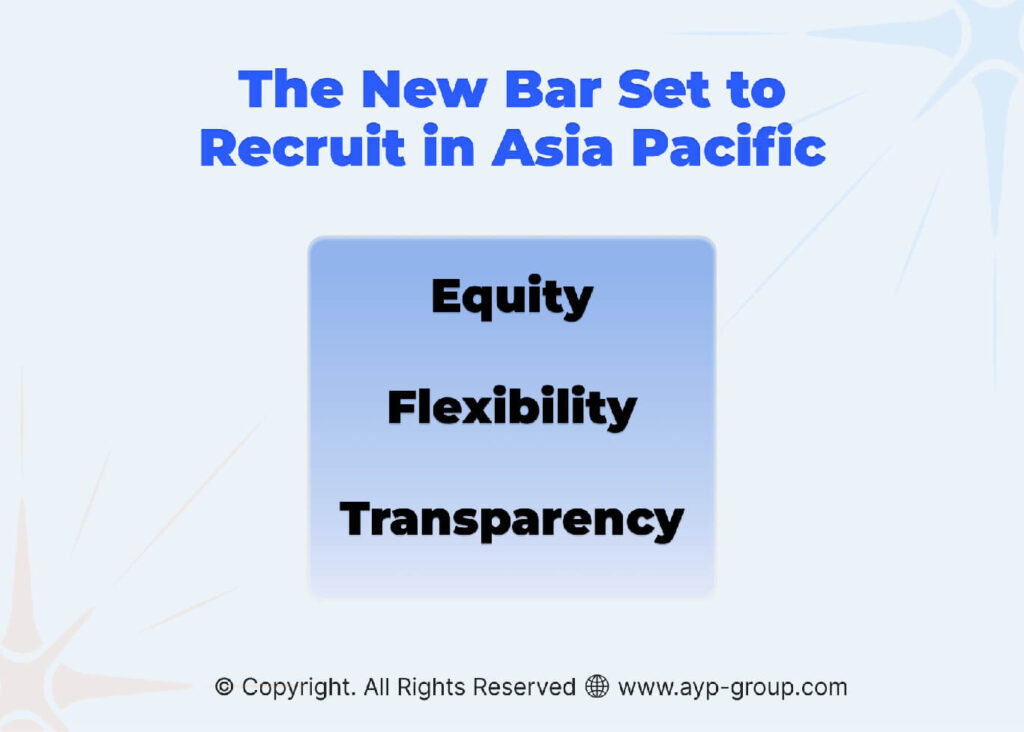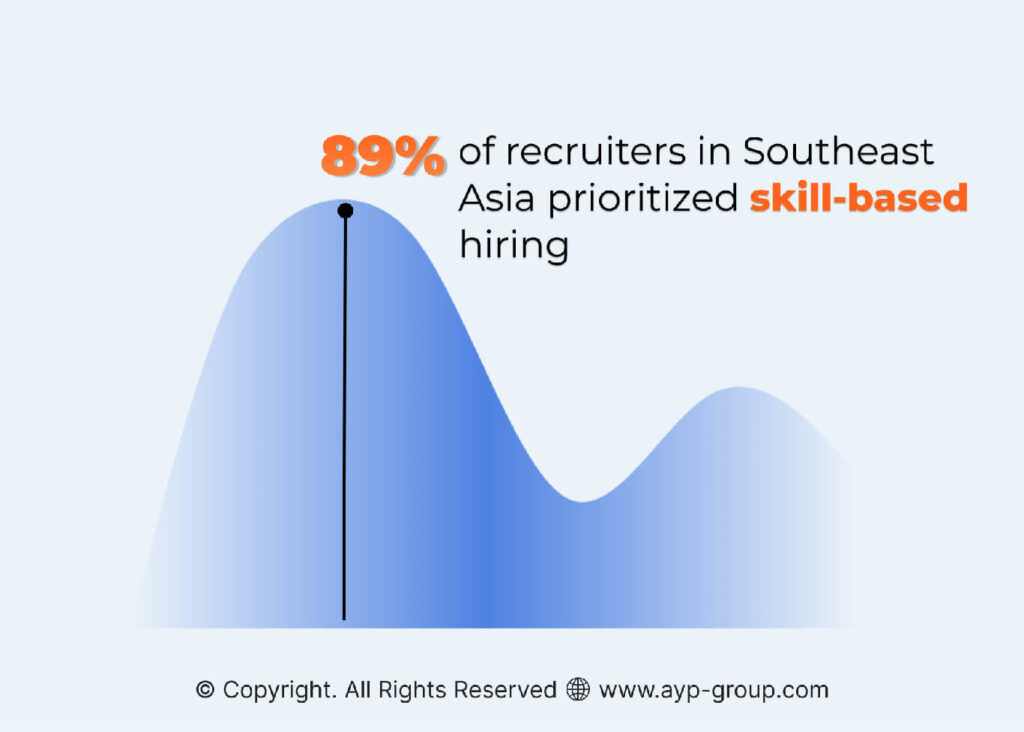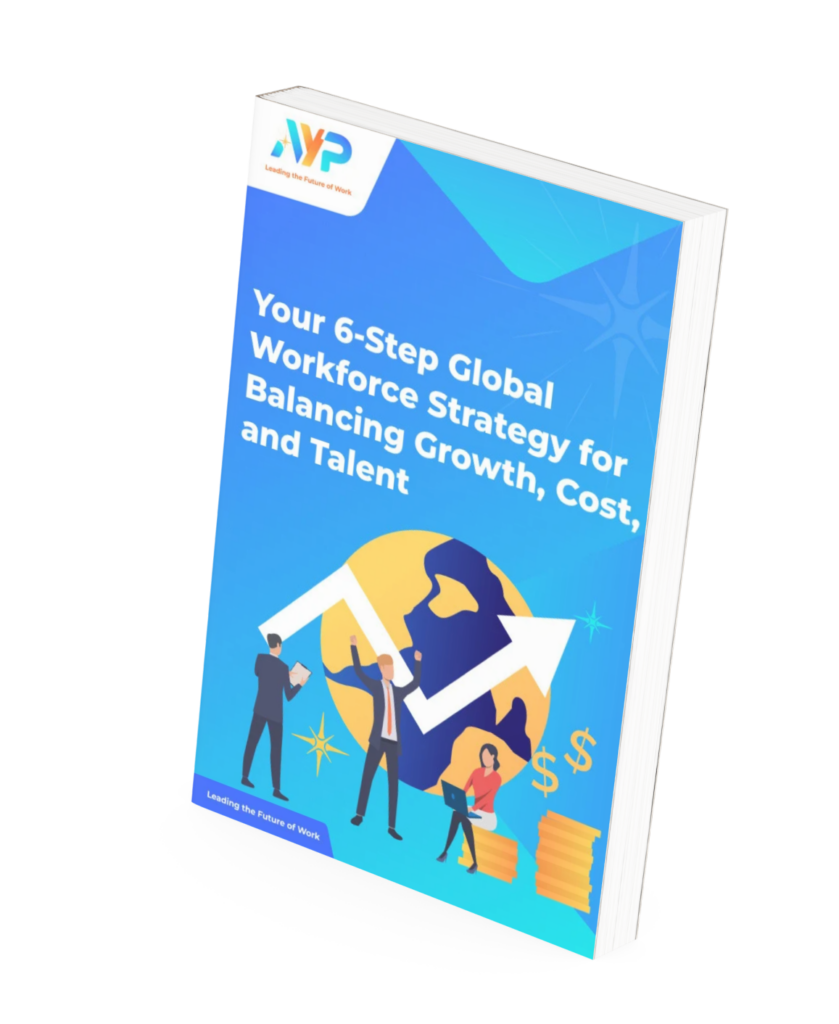As the fourth quarter of 2023 progressed and paced itself towards December that is just around the corner, we are all gearing up for the year-end checklist: payroll reviews, tax reports, compliance documents, employee evaluations, and many more. Moving onwards to 2024 signals a jump onto the bandwagon of future recruitment trends – ones that are presumably different, or at least are rising fast to shift the current hiring trends.
Hiring in Asia: A course of changing recruitment landscape
2024 looks set to kickstart its own recruitment trends in Asia – taking over from this year that will pass the baton of uncertainties which affected the current recruitment landscape by pairing economic downturn with a concerned rise of operational expenses. Organizations in Asia Pacific today face a challenge of having to retain current workforce while facilitating workforce growth – a steep task that is further complicated by a workforce that is comprised of four generations today, with a need for people-centric leadership at helm.
Not only are employers expected to empower their employees, workers’ expectations have also changed along the way. Many employees have gathered personal self-reflection during these post-pandemic times – and many are rethinking their work arrangements in favour of meaningful work that comes with fair pay. Greater transparency, equity, and flexibility – that is the new bar set to recruit new hires in Asia Pacific today.

With the changing requirements and shifting recruitment landscape, it is not surprising that these new demands give rise to new HR trends in Asia that have potential to steer hiring processes to bigger heights, or inspire innovations and people alike. Here are 4 trends that are likely to take over the recruitment landscape in 2024:
The rise of remote work popularity

New working norms such as remote working or remote work from home jobs are no longer a temporary pandemic solution, but a permanent fixture in post-pandemic work arrangements. Many employees are embracing flexibility in their work, with 90% of the workforce in Asia Pacific prefers working either remotely or in hybrid mode1. The popularity of remote work is further justified by an increase in employee’s productivity or efficiency, as reported by IDC in a 2022 survey whereby more than 70% of employees surveyed recorded higher or same level productivity when compared to pre-pandemic times2. This implies that employers today are wise to integrate remote work within their organizations by investing in the right technologies, policies, or training to attract top talent and retain them for their company’s success.
Candidate experience matters
To compete for top talents in the industry, it is crucial for organizations today to understand that candidate experience can either make or break a candidate’s decision to apply to available vacancies and subsequently, to accept a job offer. Candidates today who are internet-savvy tend to research an organization by looking at an average of six reviews of a company3, and the interview experience can be significant as an astonishing nine out of ten people experienced frustrating interview experiences in a 2021 report by Michael Page Malaysia, with more than half citing that the dissatisfactions will influence them when deciding to accept a job offer4. Allowing potential candidates to have a good hiring experience with a seamless recruitment process is the first step in attracting and ultimately retaining the best talent there is.
Prioritization of skills-based hiring

Employers across Asia Pacific are looking for specific skills set when it comes to hiring new employees today: 89% of recruiters in Southeast Asia prioritized skill-based hiring, with around 87% prioritizing upskilling and reskilling. This sentiment is echoed by employees in India, whereby 82% of them agreed that more organizations are hiring skills over paper qualifications such as degrees, or experience5. Some industries are hiring based on a broader set of skills, but for a more definite role, such as hybrid roles in the fields of data science, marketing, and sales6. No matter which industry there is, employers are leveling the recruitment arena that is filled with new demands from employees today with a prioritization of trend of skill-based hiring now.
Streamlined, data-centric hiring
Talent acquisition in Asia has seen an innovation in the form of adoption of Artificial Intelligence (AI), machine-learning and other data-centric technologies in the process of streamlining hiring procedures. This translates to tools being utilized during recruitment, such as automated resume screening, initial interaction with candidates using chatbots, and predictive analytics for identifying the best candidate that could fit a specific role7. With the convenience and cost-saving benefits that come with these new technologies, it is very likely that this trend will continue onwards to 2024 – and possibly expand further due to its versatility and efficiency.
Move ahead into 2024 new hiring trends with AYP confidently

At AYP, we believe that it is important to observe these new hiring trends and be in the know so that organizations can continue to grow and thrive. What is more important is the fact that businesses today require a trustworthy partner with sound HR solutions that can build a solid team for steady growth and expansion – in which AYP’s deep HR expertise and award-winning services can help. Accelerate your business growth with us through our streamlined hiring processes alongside hiring trends that can:
- Attract digitally competent staff
- Mitigate your risks of suffering from cyber-attacks
- Speed up global expansion
- Allow access to a global talent pool that improves diversity and inclusion
- Help support remote work
So let us help build your A-list team for your business success today – and get in touch with our HR experts now.
References
- Asia Pacific's Time: Responding to the New Reality ↩︎
- New IDC Report Reveals 56% of Asia Pacific Employees Want Flexible Work Even Beyond the Pandemic ↩︎
- How Jobseekers Are Using Glassdoor ↩︎
- Why Candidate Experience Matters and How To Do It Well ↩︎
- What Businesses Can Learn From Skills-based Hiring Trends in Asia-Pacific ↩︎
- NTUC Emerging Jobs and Skills Report 2022 ↩︎
- Talent Acquisition Trends For 2023 In Asia ↩︎



